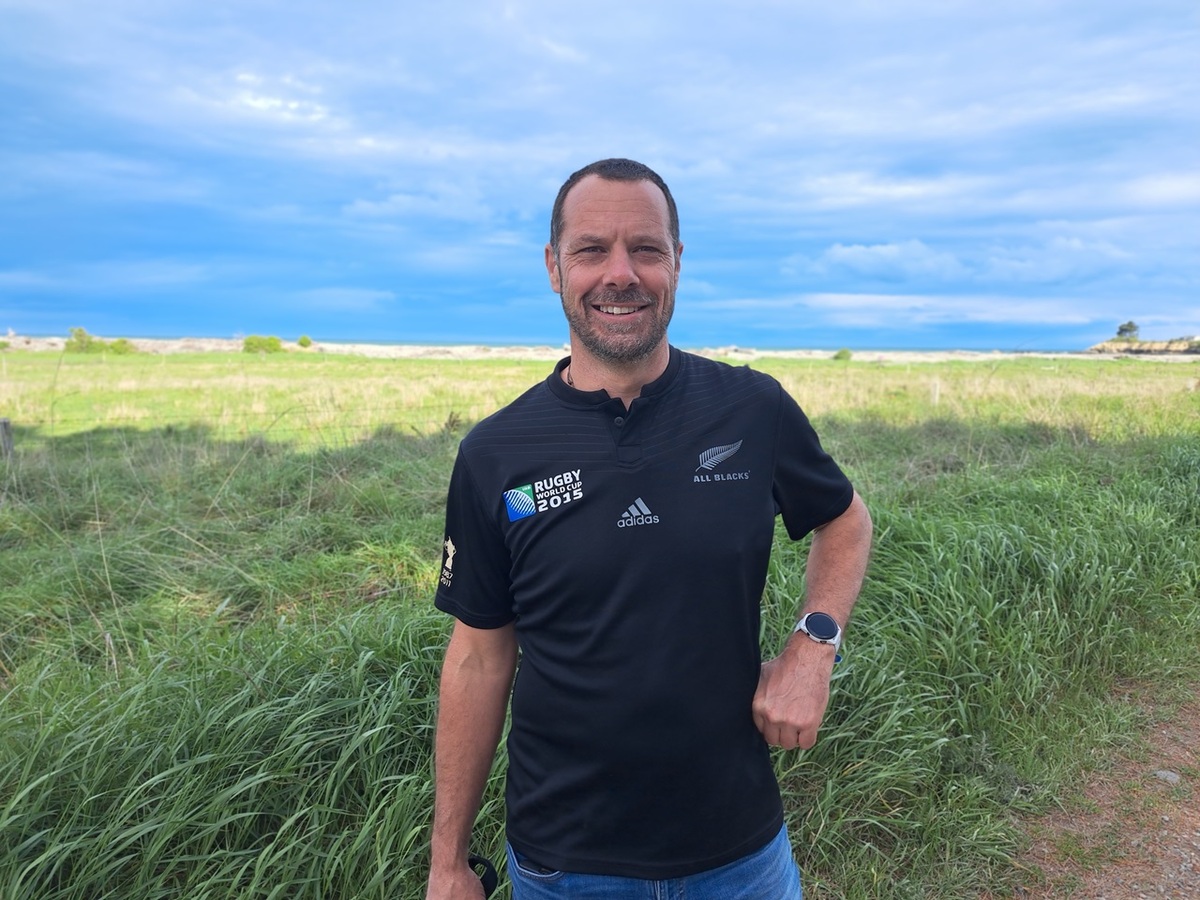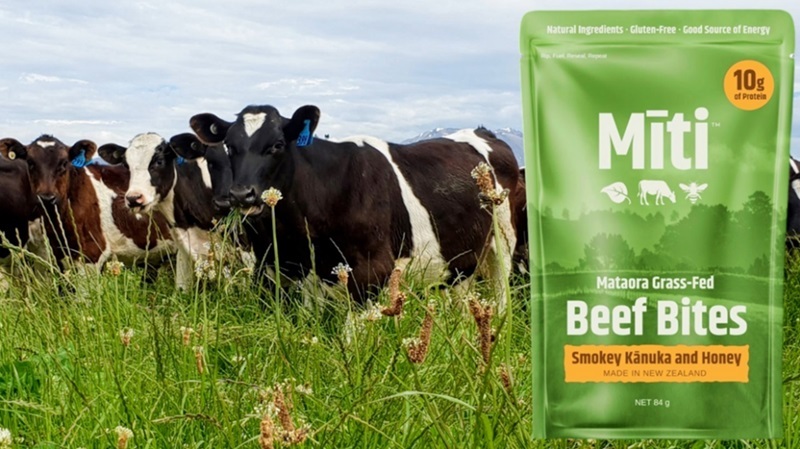From passion to production - founder seeks boost for next steps
Ashley Smyth
14 October 2024, 8:51 PM
 Mīti founder Daniel Carson. Photo: Ashley Smyth
Mīti founder Daniel Carson. Photo: Ashley SmythAfter three years of hard graft on his business dream, North Otago man Daniel Carson is on the cusp of finding out whether it will pay dividends.
Mīti, a meat snack made using 10-month dairy beef and beech honeydew, is going into limited production next month, and Dan is looking for public support through a month-long PledgeMe campaign.
“Essentially we just need a 10 percent top-up to pay for the manufacturing that we've already committed to. We're making 35,000 packets,” he says.
The Mīti will be manufactured in Auckland’s The Food Bowl where, with the help of co-founder and food technologist Dr Lily Liu, they have worked to finalise a product they are happy with.
Dan hopes PledgeMe will continue to increase momentum around the product, which will also be available online once the campaign ends.
The idea for Mīti stems from Dan’s desire to change one of the most problematic parts of New Zealand’s dairy industry, the slaughter of close to 2 million calves annually - surplus to requirements and mostly male - at around four days old.
With a background in technology sales, 10 years’ experience managing a farm in Canterbury, and a passion for science and data, Dan came up with the idea of the food product.
The meat snack industry is huge globally, and he believes New Zealand is missing out on an opportunity to be a bigger part of it.
A former flatmate and now NZ Beef & Lamb market researcher, Hugh Good, came on board as a co-founder, and Dan then connected with Lily through LinkedIn.
He has been working full-time on Mīti since August.
The New Zealand public got their first taste of an earlier version of Mīti when it was trialled at Hamilton’s Field Days last year, and it recieved positive feedback.
The initial vision of a bar-shaped snack has been modified to suit the manufacturing equipment available, and the recipe has also been refined.
It no longer includes native horopito and nori seaweed, due to supply reliability issues, but the product stays true to Dan’s original vision of using all-natural ingredients - in particular beech honeydew from Southern Alps Honey in Mid Canterbury as the preservative.
Mīti has just passed 12-month shelf-life testing.
The change from a bar to a bite shape is one of the concessions that had to be made to ensure the manufacturing of Mīti stays in New Zealand, something Dan continues to push for, despite facing ongoing obstacles.
“It was going to be quite easy to send all the raw material over to Australia and get it made under contract there, but we really wanted to make it in New Zealand, so that's why we've changed things.
“But it's probably for the better, because the bite format's possibly easier for people to understand for a beef snack.”
Initial data from scientific studies AgResearch is carrying out points towards confirming Dan’s own findings that young dairy beef is more environmentally friendly than other beef sources, due to the “feed conversion efficiency”.
“Because most of the feed that goes into them is for growth. Obviously the bigger an animal is, the higher the proportion of its diet goes to just maintaining its weight before it grows on top of that,” he says.

A screenshot from the PledgeMe website.
“And we're essentially processing them at the peak of that feed conversion efficiency.”
The study is awaiting peer review before the official results can be released, but so far shows this stock class releases up to 47 percent less emissions than New Zealand's average beef production, per kilo of beef produced, he says.
AgResearch is also looking into the gut and brain health benefits of Mīti, which Dan is convinced it contains due to its all-natural make-up, and he is excited to see the results.
“I’m hoping it's going to grab attention because we want this to be something unique in the marketplace. And we want it to be an export food, so we're hoping it's going to get quite a bit of attention for all its points of difference, compared to what else is in the market.”
Every step that has gone toward creating the finished product has been its own challenge, Dan says.
And then there’s convincing the supply chain - the farmers and the industry - why the age of the cows at processing is the optimum for a scalable solution to the bobby calf problem, he says.
But this is also what has kept him going.
“Even though help hasn't been financially there, people get it, and there's been enough encouraging people who are interested that I want to keep going.”
His supporters, either financially or in kind, include the Ministry of Primary Industries, AgResearch, Pāmu Farms, Alliance, Fonterra, Bioresource Processing Alliance and even the SPCA.
He envisages a “New Zealand Inc” approach and has come up with the concept of a new brand - Mataora Beef.
“Which is essentially just what the branding would be for the scale availability of this young beef product, manufacturing protein or ingredient. And it would be available for others to purchase with all the environmental credentials and the animal welfare credentials wrapped around the brand, so they know what they're getting.
“And all of the processors in the country would essentially be selling the same thing under the same brand at the same price, because no other country could produce this ingredient, because no other country has the size of the bobby calf issue.
“We need to start looking at doing a few things differently, and I'd like to think that it's a good opportunity now to change away from the status quo, because the status quo is not working.”
Mīti’s target market is “pretty much everyone”, Dan says.
Children seem to love it, it's great for sports endurance and physical activities, and because of its room temperature shelf-life, “it'll go anywhere”.
The PledgeMe campaign finishes on 22 November, and people can pre-order Mīti for December delivery, or they can contribute as little as $5 towards the cause, pay $10 to donate a pack to a foodbank, or treat themselves to different experiences.
Following the end of the campaign, Mīti will be for sale online, and Dan will also be hard at work trying to get it into stores, so he can continue to pay his mortgage, he says.
He also hopes to have a presence at international food shows to gauge interest from potential export markets.
In an ideal world, he will upscale “massively” and eventually hopes to establish a manufacturing facility in the Waitaki.
The first production run on Mīti will begin on 4 November and end 22 November.
NEWS
WHAT'S ON GUIDE




